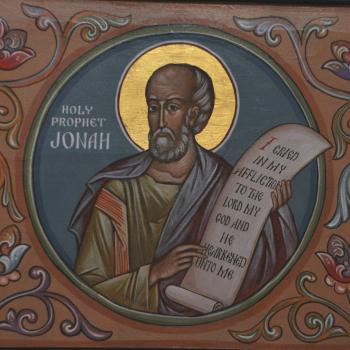
The COVID19 pandemic continues to threaten the world. What can justly be done to stop it must be done for the sake of the common good. Vaccine mandates can be, and indeed, have become an important tool in dealing with the pandemic. Some people, believing false information and lies which they have heard, have been led to believe that they must not take the vaccine, and so form a conscientious objection to doing so. Some, who do not like having to take shots, confuse their desire with conscience, and so claim to be among those who have a conscientious objection to the vaccine. Clearly, that claim is false, because we can and often have to do things which we prefer not to do. Others, being obstinate and not liking the people in charge of the government, oppose being vaccinated as a political statement, and though they claim conscientious objection to the vaccine, their argument has nothing to do with their conscience but rather their rebellious nature. While it is true, those whose conscience tells them not to take the vaccines should not do so (though they should work to better form their conscience), this does not mean the state cannot or should not impose restrictions on them, nor that all claiming such an objection truly have one.
When the public good is harmed, society can defend itself, even if the one harming society claims to do so as a result of what their conscience tells them to do. We must not embrace a libertarian or relativistic ethic which would lead us to anarchy. Pope Benedict XVI reminded us that there is an objective moral framework: “But here we encounter a serious risk because modern thought has developed a reductive view of the conscience. It maintains that there are no objective references for determining what is valid and what is true but that it is the individual person with his or her intuition who is the yardstick; each one, therefore, possesses his own truth, his own morality.”[1] St. John Paul II, likewise, warned against a libertarian approach to morality, an approach which some people defend with appeals to the primacy of the conscience:
Certain currents of modern thought have gone so far as to exalt freedom to such an extent that it becomes an absolute, which would then be the source of values. This is the direction taken by doctrines which have lost the sense of the transcendent or which are explicitly atheist. The individual conscience is accorded the status of a supreme tribunal of moral judgment which hands down categorical and infallible decisions about good and evil. To the affirmation that one has a duty to follow one’s conscience is unduly added the affirmation that one’s moral judgment is true merely by the fact that it has its origin in the conscience. But in this way the inescapable claims of truth disappear, yielding their place to a criterion of sincerity, authenticity and “being at peace with oneself”, so much so that some have come to adopt a radically subjectivistic conception of moral judgment.[2]
The conscience must be properly developed, and this requires people to engage and recognize an objective truth which forms the basis of an objective moral standard. Their conscience should respond to each and every situation informed by such objective grounds. If someone were to have resisted the proper formation of their conscience, though they must follow it insofar as it is there, they can and will be held responsible for bad decisions they make because they would have already compromised their conscience by ignoring its need to be properly developed:
Conscience, as the ultimate concrete judgment, compromises its dignity when it is culpably erroneous, that is to say, “when man shows little concern for seeking what is true and good, and conscience gradually becomes almost blind from being accustomed to sin”. Jesus alludes to the danger of the conscience being deformed when he warns: “The eye is the lamp of the body. So if your eye is sound, your whole body will be full of light; but if your eye is not sound, your whole body will be full of darkness. If then the light in you is darkness, how great is the darkness!” (Mt 6:22-23). [3]
St. Pius X, therefore, warned us not to use our conscience as an excuse to ignore the dictates of authority, claiming a love for truth when in fact, what is being promoted is pride and obstinacy:
Finally, and this almost destroys all hope of cure, their very doctrines have given such a bent to their minds, that they disdain all authority and brook no restraint; and relying upon a false conscience, they attempt to ascribe to a love of truth that which is in reality the result of pride and obstinacy.[4]
Thus, it is true, conscience is king. We are to obey it and its dictates. And, insofar as its directions lead us to act in ways which do no harm to the public good, we should be free to follow our conscience without restriction. “Civil authorities likewise have the corresponding obligation to respect and enforce this fundamental right within the just limits of the common good.”[5] Those who hold positions of authority must also follow their conscience. If they believe that without certain rules and regulations upon society, the common good would be needlessly and seriously harmed, they must establish those regulations even if someone else would oppose them with their own conscience. The state must do what it can to allow people the freedom to follow their conscience, but it has limits as to what it can allow; if someone’s conscience would have them act against the common good, the state must respond with justice and mercy so as to curtail the possible harm to society. If authorities do this, if they work for the common good, and their regulations do not go against the greater moral law (but reinforce it), then, even if it is inconvenient, their citizens are obliged to obey:
It follows also that political authority, both in the community as such and in the representative bodies of the state, must always be exercised within the limits of the moral order and directed toward the common good—with a dynamic concept of that good—according to the juridical order legitimately established or due to be established. When authority is so exercised, citizens are bound in conscience to obey. [6]
This is because, like religious freedom, the exercise of the conscience has to be subject to certain regulatory norms in order to preserve justice and civility:
The right to religious freedom is exercised in human society: hence its exercise is subject to certain regulatory norms. In the use of all freedoms the moral principle of personal and social responsibility is to be observed. In the exercise of their rights, individual men and social groups are bound by the moral law to have respect both for the rights of others and for their own duties toward others and for the common welfare of all. Men are to deal with their fellows in justice and civility. [7]
Conscience is king, but it is not infallible. When the state proposes something for the common good, those who object to the state’s demands must give due diligence to what the state says, learn as much as they can, so that their conscience can be properly formed. It gives its response due to what a person knows and understands of the situation. As they can be ignorant, their conscience can lead them to act incorrectly. “Certainly, in order to have a ‘good conscience’ (1 Tim 1:5), man must seek the truth and must make judgments in accordance with that same truth.“[8] Invincible ignorance removes culpability, but vincible ignorance, on the other hand, leaves the person culpable for their malformed conscience. Thus, we must not confuse people acting with their conscience as if they are acting justly or even morally. Their conscience can be malformed; their ignorance can lead them astray, and so they can act in ways which would harm the public good. When this happens, the state not only has a right, but a duty to respond. Following one’s conscience does not mean one will be free from blame for what one does, nor free from the consequences of their actions. This is why, if someone opposes vaccine mandates for COVID19, and their conscience will not allow them to take the vaccine, this does not mean the state cannot respond and impose various penalties for their actions. The state would be violating its duty if it ignored the public good, and its leaders did not act with their conscience to do all they could to stop the pandemic.
[1] Pope Benedict XVI, “To The Officers and Personnel of the Italian State Police” (1-21-2021). Vatican translation.
[2] St. John Paul II. Veritatis Splendor. Vatican translation. ¶32.
[3] St. John Paul II. Veritatis Splendor, ¶63.
[4] Saint Pius X. Pascendi Doominici Gregis. Vatican translation. ¶3.
[5] International Theological Commission. Religious Freedom For the Good of All. Vatican translation. ¶40.
[6] Vatican Council II, Gaudium et spes. Vatican translations. ¶74.
[7] Vatican Council II, Dignitatis humanae. Vatican translation. ¶7.
[8] St. John Paul II. Veritatis Splendor, ¶60.
Stay in touch! Like A Little Bit of Nothing on Facebook.
If you liked what you read, please consider sharing it with your friends and family!













